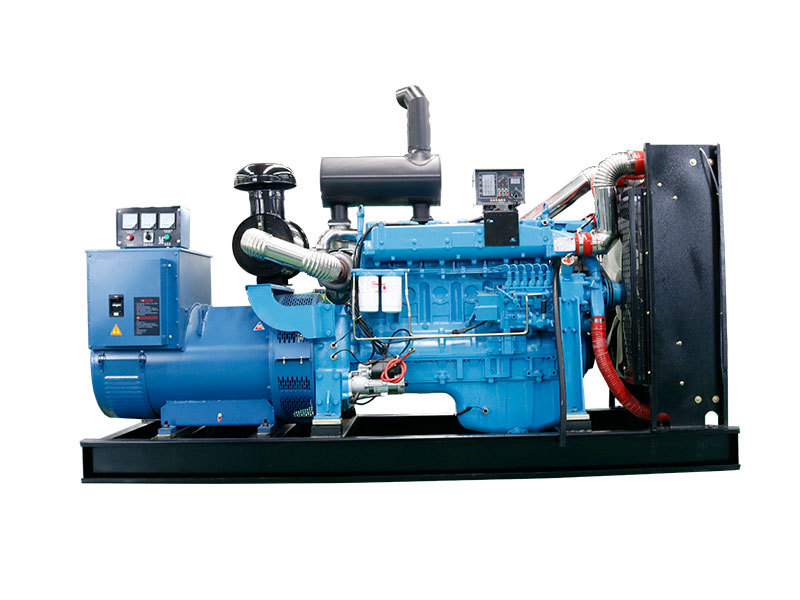Introduction
When it comes to power generation, choosing the right generator set can be a daunting task. The two most common types of generator sets are diesel and gas. Both have their advantages and disadvantages, and the best choice depends on your specific needs. In this article, we'll explore the differences between diesel and gas generator sets to help you make an informed decision.
Fuel Efficiency
Fuel efficiency is one of the most important factors to consider when choosing a generator set. Diesel engines are more fuel-efficient than gas engines, which means they can run longer on the same amount of fuel. This is especially important in situations where you need to run your generator for extended periods, such as during a power outage or in remote locations where fuel may not be readily available.
Diesel Fuel Advantages
Diesel fuel has a higher energy density than gasoline, which means you can store more energy in a smaller space. This is why diesel generators are often used in large-scale industrial applications where fuel storage space is limited. Additionally, diesel fuel is less volatile than gasoline, which makes it safer to store and handle.
Gasoline Fuel Advantages
While diesel fuel is more energy-dense, gasoline is more readily available and often less expensive. This can make gas generators a more cost-effective option for smaller-scale applications or for those who only need to run their generator occasionally. Additionally, gasoline engines are generally quieter than diesel engines, which can be an important consideration in residential applications.
Maintenance
Another important factor to consider is maintenance. Diesel engines are generally more durable and require less maintenance than gas engines. This is because diesel engines have fewer moving parts and are designed to withstand heavy use. However, diesel engines do require regular oil changes and filter replacements, which can add to the overall cost of ownership.
Diesel Engine Maintenance
To keep your diesel engine running smoothly, it's important to follow the manufacturer's recommended maintenance schedule. This typically includes regular oil changes, filter replacements, and inspections. Additionally, you should always use high-quality diesel fuel and additives to prevent engine damage and extend the life of your generator set.
Gasoline Engine Maintenance
Gasoline engines require more frequent maintenance than diesel engines, including regular oil changes, spark plug replacements, and carburetor adjustments. However, gas engines are generally easier and less expensive to maintain than diesel engines. Additionally, gasoline is less likely to degrade over time, which can be an important consideration in situations where you may not be using your generator set regularly.
Cost
Cost is always an important consideration when choosing a generator set. Diesel generators tend to be more expensive than gas generators, both in terms of initial purchase price and ongoing maintenance costs. However, diesel generators are more fuel-efficient, which can save you money in the long run. Additionally, diesel generators have a longer lifespan than gas generators, which means you may not need to replace them as frequently.
Initial Purchase Cost
When comparing the initial purchase price of diesel and gas generator sets, it's important to consider the size and power output of the generator. Generally speaking, diesel generators are more expensive than gas generators of the same size and power output. However, diesel generators are often more cost-effective in the long run due to their fuel efficiency and longer lifespan.
Ongoing Maintenance Costs
Ongoing maintenance costs are another important factor to consider when choosing a generator set. Diesel engines require more frequent oil changes and filter replacements than gas engines, which can add to the overall cost of ownership. However, diesel engines are more durable and require less frequent repairs and replacements than gas engines. Additionally, diesel fuel is often less expensive than gasoline, which can help offset the higher maintenance costs.
Conclusion
In conclusion, when it comes to choosing between diesel and gas generator sets, there is no one-size-fits-all answer. The best choice depends on your specific needs and circumstances. If you need a generator set for large-scale industrial applications or for extended periods of use, a diesel generator may be the best choice due to its fuel efficiency and durability. However, if you only need a generator set for occasional use or for smaller-scale applications, a gas generator may be more cost-effective and easier to maintain.
So, which one is best for you?
To make an informed decision, consider the following factors:
By taking the time to carefully evaluate your needs and consider the pros and cons of each type of generator set, you can make an informed decision and choose the one that best meets your power generation needs.





